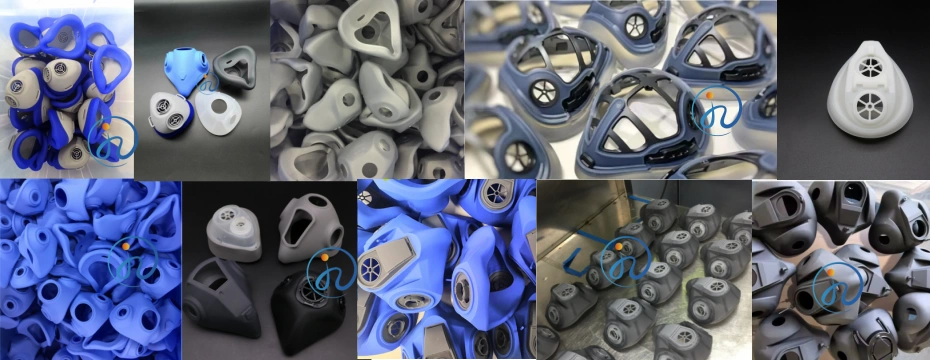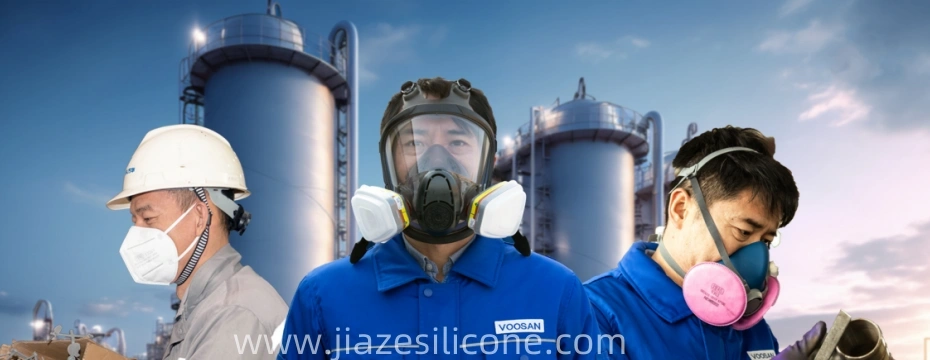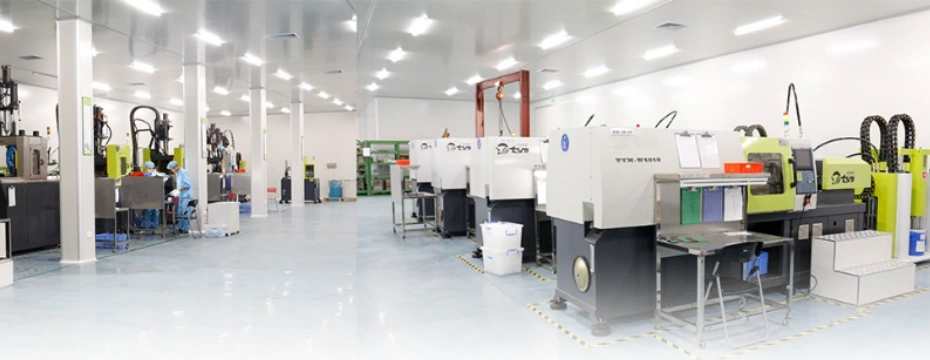Table of Contents
ToggleAs the need for robust respiratory protection continues to grow across various industries, elastomeric half-mask respirators have become a reliable choice for many workplaces. These reusable, tight-fitting respirators provide a high level of protection against airborne contaminants, including particles, gases, and vapors. Unlike disposable masks, half-mask respirators are designed for repeated use and offer replaceable filter cartridges for cost-effective and sustainable protection.

This article explores the industries and applications where half-mask respirators are essential. Whether you’re in healthcare, manufacturing, or construction, understanding the relevance of these masks can help improve workplace safety, regulatory compliance, and operational efficiency.
What is an Elastomeric Half-Mask Respirator?
An elastomeric half-mask respirator covers the nose and mouth and uses an elastomeric ( liquid silicone rubber ) facepiece. It forms a secure seal on the user’s face and features replaceable filter cartridges for protection against harmful airborne substances. Unlike full-face respirators, it offers a lighter and more comfortable solution while still providing strong respiratory protection.
Key features include:
- Reusable design
- Replaceable filters or cartridges
- Durable silicone rubber construction
- Compatibility with safety goggles or face shields
- Cost-effectiveness over long-term use
Key Industries Using Half-Mask Respirators
Let’s dive into the major industries where half-mask respirators play a vital role.

1. Healthcare and Emergency Services
While traditionally associated with industrial environments, healthcare workers increasingly use elastomeric respirators due to their reusability and high filtration efficiency—especially during pandemics or infectious disease outbreaks.
Applications:
- Hospitals and clinics
- Emergency medical response
- Quarantine and infectious disease wards
Why They Use It:
- Better seal compared to surgical masks
- Protection from aerosolized pathogens
- Lower cost over time vs. disposable N95 masks
2. Manufacturing and Industrial Production
In manufacturing plants, especially those dealing with chemicals, paint, solvents, or metal dust, the air can be filled with hazardous substances. Elastomeric half-mask respirators are often part of mandatory PPE.
Applications:
- Chemical processing
- Electronics manufacturing
- Automotive and aerospace industries
Why They Use It:
- Protection from chemical fumes and vapors
- Resistance to oils and particulates
- Long-term comfort during 8+ hour shifts

3. Construction and Demolition
Construction sites are among the most dust-intensive workplaces. From cutting concrete to spraying insulation foam, the dust, silica particles, and chemical fumes require strong respiratory protection.
Applications:
- Concrete grinding and cutting
- Demolition and asbestos removal
- Painting and coating
Why They Use It:
- OSHA regulations for silica dust exposure
- Reusability in dusty environments
- Enhanced protection compared to paper masks
4. Oil & Gas Industry
The oil and gas industry often involves exposure to volatile organic compounds (VOCs), hydrocarbons, and sulfur compounds. Elastomeric half-mask respirators with specific cartridges help filter these harmful gases.
Applications:
- Refining operations
- Drilling platforms
- Pipeline maintenance
Why They Use It:
- Chemical and vapor filtration
- Rugged design for extreme environments
- Compatibility with hard hats and visors
5. Mining and Quarrying
Miners face continuous exposure to coal dust, silica, and diesel exhaust fumes. Elastomeric respirators protect workers during long underground shifts, offering dependable and reusable protection.
Applications:
- Coal and metal mining
- Ore processing
- Underground drilling
Why They Use It:
- Long-term filtration capability
- Cost-effective for remote operations
- Comfort in confined spaces

6. Pharmaceuticals and Laboratories
In laboratory and pharmaceutical manufacturing settings, clean air is critical. Workers handling powders, chemicals, or biological agents must wear effective respiratory protection.
Applications:
- Pharmaceutical production
- R&D labs
- Biotech and chemical research
Why They Use It:
- Control over airborne contamination
- Protection against biological hazards
- Suitable for cleanroom-compatible designs
7. Agriculture and Pesticide Application
Agricultural workers are often exposed to pesticides, fertilizers, animal dander, and mold spores. Half-mask respirators fitted with appropriate cartridges help protect their lungs.
Applications:
- Pesticide spraying
- Livestock farming
- Grain storage and milling
Why They Use It:
- Defense against organic dust and aerosols
- Resistance to chemical sprays
- Long-lasting for seasonal work
8. Firefighting and Disaster Response
In disaster zones and wildfire areas, where smoke, ash, and chemical residues are present, half-mask respirators provide essential protection for first responders.
Applications:
- Wildfire containment
- Hazardous material response
- Earthquake and flood rescue
Why They Use It:
- High durability in emergency settings
- Compatibility with other protective gear
- Easy communication and mobility
Benefits of Using Elastomeric Half-Mask Respirators
Regardless of the industry, these respirators offer several compelling advantages:
- Reusable and cost-effective over time
- Durable design withstands harsh environments
- Customizable filters for specific hazards
- Comfortable fit reduces fatigue
- Environmentally friendly alternative to disposable masks

Regulatory Standards and Certifications
To ensure safety and compliance, elastomeric half-mask respirators must meet regional and international standards, such as:
- NIOSH (U.S.) – National Institute for Occupational Safety and Health
- EN 140 (Europe) – Respiratory protective devices
- OSHA guidelines for workplace respiratory protection
Proper fit testing, training, and filter selection are also required to maintain compliance.
Conclusion
Elastomeric half-mask respirators are vital across a wide range of industries due to their durability, reusability, and high protection level. Whether you’re dealing with dust, fumes, gases, or biological hazards, these masks offer a practical solution to safeguarding workers’ respiratory health.

If you’re a procurement manager, safety engineer, or occupational health specialist, investing in high-quality half-mask respirators is not only a smart business decision but a responsible one.